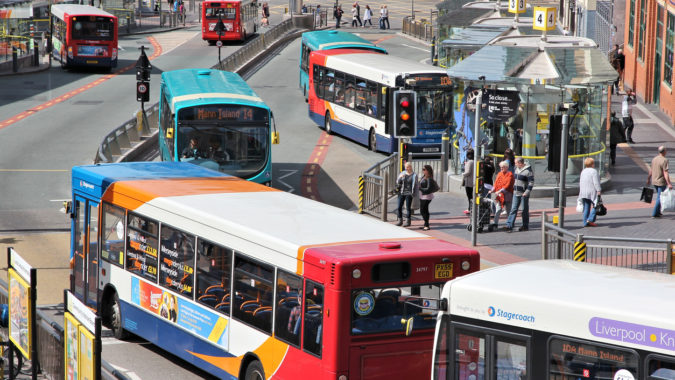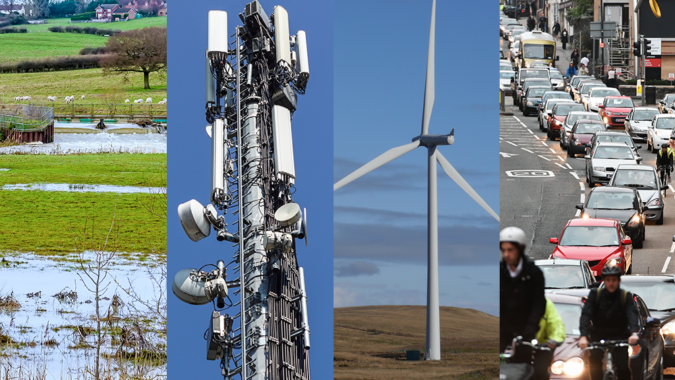In October 2015, the National Infrastructure Commission was asked to consider how the UK can better balance supply and demand, aiming towards an electricity market where prices are reflective of costs to the overall system.
Today (Friday 4 March), the Commission publishes that analysis.
The Commission’s central finding is that smart power – principally built around three innovations, interconnection, storage, and demand flexibility – could save consumers up to £8 billion a year by 2030, help the UK meet its 2050 carbon targets, and secure the UK’s energy supply for generations.
‘Smart power’ makes practical recommendations to this end – not new subsidies or substantial public spending – but towards the creation of a level playing field and a better managed network:
- government should pursue additional interconnectors with other European countries where the benefits are most significant
- the UK should become a world leader in electricity storage systems. Two steps are required: a review of the regulatory and legal status of storage, removing outdated barriers to be completed by Spring 2017 and implemented as soon as possible, and Ofgem should encourage network owners to use storage
- the UK should make full use of demand flexibility by improving regulation, informing the public of its benefits and piloting business models
Lord Adonis said:
“Quality infrastructure is fundamental to our quality of life. Better decision making, clearer planning, and more efficient and timely delivery can help create the world class infrastructure this country needs to succeed.
“To radically improve, we have to do more than simply adapt to a changing world – we must shape that change to our advantage. The developments in our electricity sector are a case in point.
“Our existing power stations are closing down and their replacements will be radically different as we decarbonise supply to reduce emissions. This represents an enormous challenge, but it also leaves the UK uniquely placed to benefit from three exciting innovations set to transform the global electricity market – interconnection, storage and demand flexibility.
“The UK can lead the world in harnessing these innovations, bringing jobs and investment into the country and cutting bills for consumers. The National Infrastructure Commission report, Smart Power, makes a series of strategic recommendations to help do exactly that.
“We do not call for new subsidies or significant public spending, but rather a level playing field through fairer regulation and a better managed network to allow these exciting new technologies to compete.
“If we get this right a smart power revolution could save consumers £8 billion a year.”
Smart Power: In brief
Part 1: All change
Our energy sector is changing fundamentally. Two-thirds of our existing power stations are expected to close by 2030 as our coal, nuclear, and oldest gas fired power stations reach the end of their lives.
This report makes recommendations to help ensure that our electricity system is fit for the future.
Our existing infrastructure was designed for a post-war world where homes and businesses were supplied almost exclusively from large fossil fuel generators.
As we modernise and decarbonise our energy system we need to find new ways to manage the network in the most efficient way possible.
This represents a serious challenge and an enormous opportunity. If we get this right, it will provide the efficient, flexible and secure energy infrastructure our country will need to thrive. DECC and Ofgem have already made a start.
Part 2: Smart power
In the coming decades the UK is uniquely placed to benefit from three innovations which could help fire a smart power revolution.
Interconnection – connecting our electricity network to our continental neighbours is already bringing down bills and helping to balance the system. More connections to cheap, green power supplies, such as Norway and Iceland could bring great benefits to the UK. Government should redouble its efforts to open new connections.
Storage – technology is accelerating at a remarkable speed. The UK could become a world leader in making use of these technologies, not through subsidies, but by ensuring that better regulation creates a level playing field between generation and storage.
Demand flexibility – A new generation of hi-tech systems means consumers can save money and cut emissions without inconvenience. Government should ensure the UK’s benefits by improving regulation, informing the public of its benefits and piloting schemes on its own estate.
Part 3: Maximising the benefits of a more flexible market
For the smart power revolution to realise its full potential we must ensure that our networks and systems keep up. This requires more active management of our local electricity networks, a national system operator able to keep up with an increasingly complex system, and a strategic approach to upgrading our network.
The UK is uniquely placed to lead the world in a smart power revolution. Failing to take advantage would be an expensive mistake.
Further detail
A smart power revolution could save consumers up to £8 billion a year by 2030
Work commissioned from Imperial College London and the University of Cambridge energy policy research group for the Smart power report found that the flexible smart power system recommended by the National Infrastructure Commission could result in savings of up to £8.1 billion a year by 2030.
In summary, one of the key observations from this study is that operational flexibility can significantly reduce the integration cost of intermittent renewables, to the point where their whole-system cost makes them a more attractive expansion option than CCS and/or nuclear.
However, sufficient operational flexibility must be available to ensure that the system can cope at times of stress (e.g. lots of wind, very low wind over several days, unexpected nuclear outages, low fuel prices, high demand).
Additional analysis carried out to quantify the potential regret of pursuing a more flexible power system, against a business-as-usual evolution with limited operational flexibility. Even in a system that is less decarbonised (e.g. reaching 200 g CO2/kWh in 2030), increasing flexibility was found to be low-regret option, reducing the overall cost while maintaining security of supply requirements.
For example, the analysis shows that gross benefits of flexibility for reaching the 50 g CO2/kWh intensity are between £7.1-8.1 billion per annum, while the corresponding benefits for the 100 g/kWh target amount to £3-3.8 billion annually (savings in the system with 200 g CO2/kWh would also be significant at around £2.9 billion per annum).
In additional studies carried out on DECC scenarios, the analysis demonstrates that flexibility could reduce the amount of low carbon generation that would need to be built to meet the carbon targets. In the core DECC scenario, the presence of non-generation flexibility can reduce the amount of nuclear and wind generation to be built between 2030 and 2050 by 14GW and 15GW respectively, while still meeting carbon targets of 25g/kWh.
Gross benefits of flexibility in these scenarios could reach £10 billion/year. This demonstrates that flexibility does not only assist in accommodating renewables output but results in significant savings in investment in low carbon generation (a decarbonisation target can be met by building less low carbon plant).
Research from ‘Future proof energy infrastructure](/government/admin/publications/600239), by Goran Strbac et al.



